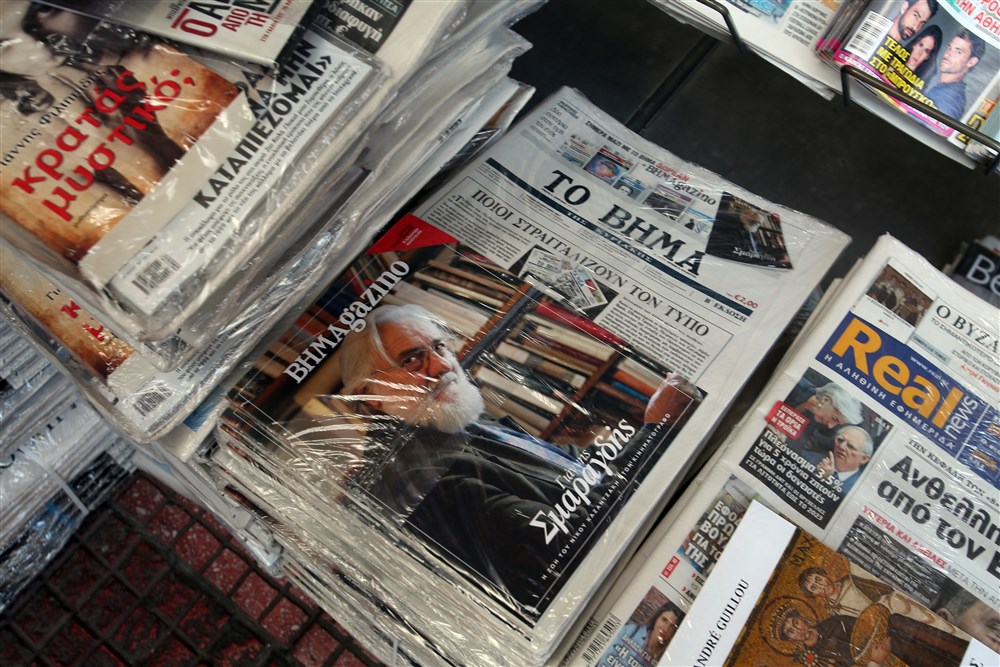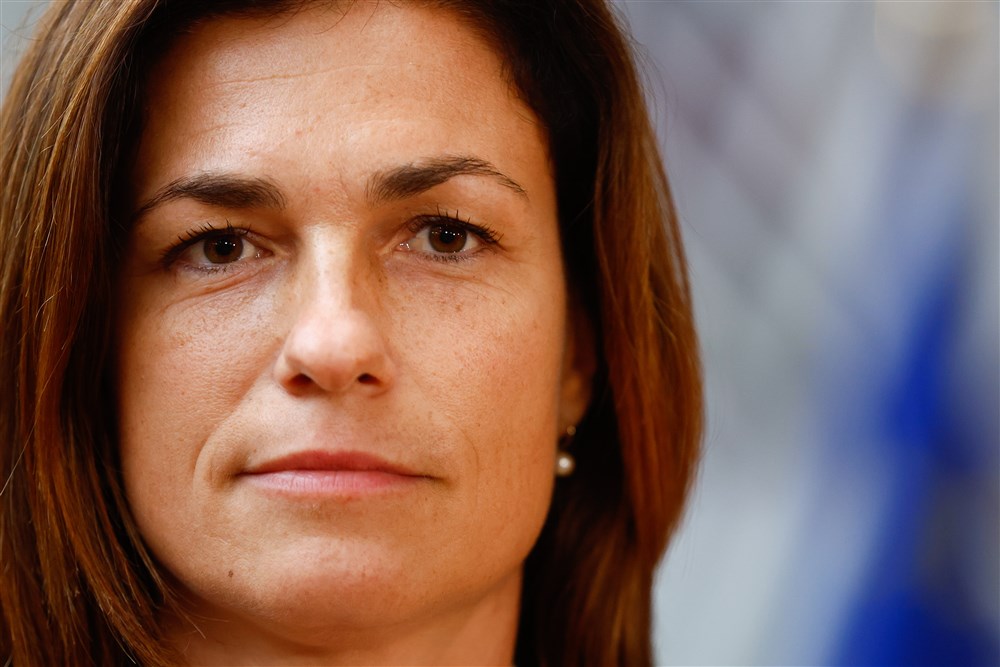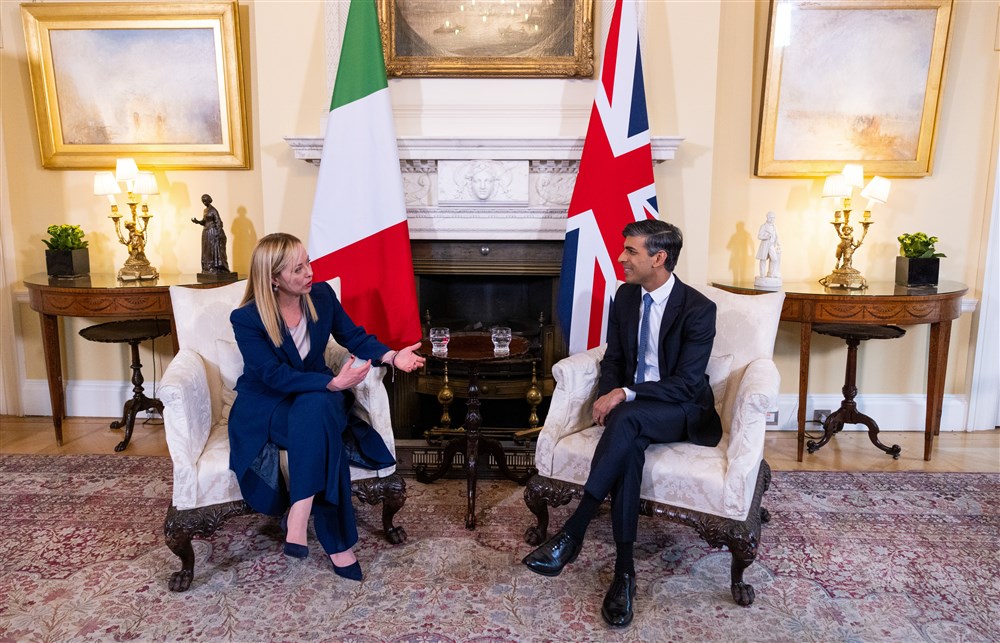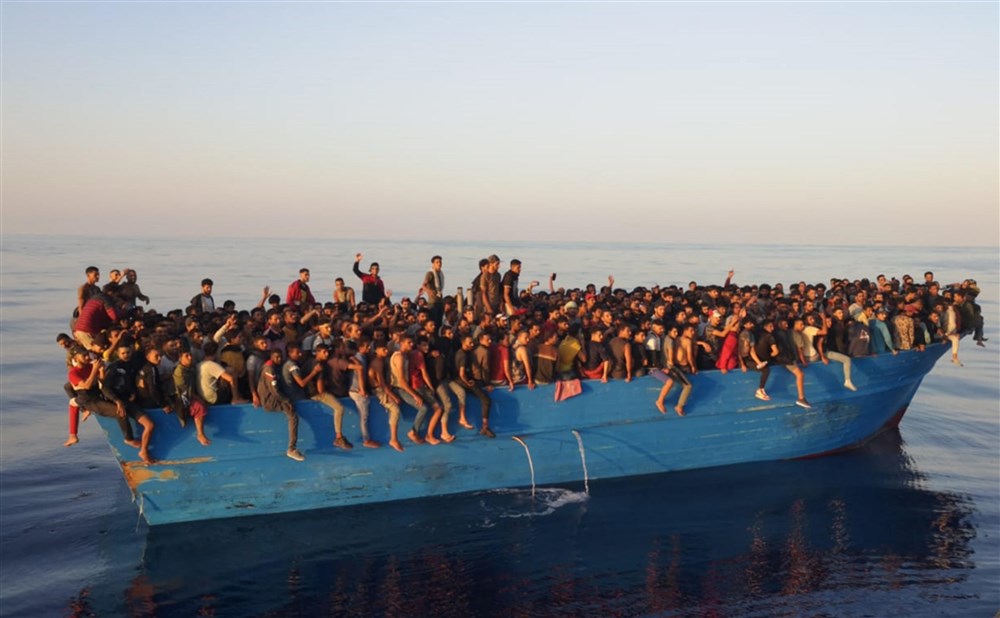Europe’s external borders need fortified walls. That was the view given by Greek Prime Minister Kyriakos Mitsotakis in an April 12 interview with Germany’s Bild newspaper.
Mitsotakis says that Greece is receiving too many migrants and that Europe needs a stricter migration policy. Migrants who arrive at the EU’s external borders should not simply be allowed to move on to other countries, particularly Germany, he argues.
Greece is a “frontline state” due to its location in the south of Europe and is “exposed to considerable migration pressure,” Mitsotakis says. Fortified border installations, such as walls, are a “necessary instrument for a national border.” He argues that it is “not fair” that Greece has to pay for constructing border walls and that he expects help from the EU.
“I will work for maximum support,” Mitsotakis says. “If that is not possible, we will build the fence with national funds.” This is because he has an obligation to his citizens to protect Greece’s territory, he explains, “and to make sure that we never again get into a situation where anyone can enter without regard for the rules of the country.”
The EU should also take action against so-called secondary movements, Mitsotakis stressed. This is the tendency of many asylum seekers not to remain in the host country after their arrival, but to travel on to other countries where they hope to find better conditions and benefits.
Mitsotakis also demanded that in future the same rules for granting asylum be applied across Europe “so that ‘asylum shopping’—perhaps not a very appropriate term, but I think we all know what we are talking about —becomes a less popular policy.”
Mitsotakis, who is seeking re-election as prime minister next month, points out that because of the tougher migration policy adopted by Greece—including the building of a wall along its border with Turkey—fewer illegal migrants are entering his country and Europe. Athens plans to extend its fence — which runs along the Evros River along the shared border with Turkey — by 35 kilometers, with the aim of adding a total of 100 kilometers by 2026. It is currently five meters high and 37.5 kilometers long.
“In 2015, 75 per cent of illegal refugees entering Europe came through Greece. Now it is less than 10 per cent,” Mitsotakis says.
His comments follow the Italian government declaring a state of emergency over the “sharp rise” in the number of migrants taking the dangerous Mediterranean route to Italy’s shores. The Italian government says the state of emergency is a temporary measure, but that eventually a European wide solution is required.
“Europe needs to wake up and intervene,” Deputy Prime Minister Matteo Salvini said. “For years it has been talking without ever moving a finger, and now it’s the time to show that there’s a community, a Union, and solidarity doesn’t fall just on Italy, Spain, Greece or Malta.”
During the first three months of 2023, illegal migration into the EU has increased by 26 per cent over the same period last year, according to Frontex.
? Latest from the EU’s external borders:
?In the first three months of 2023, the number of irregular border crossings increased to 54 000, 26% more than in the same period last year.
More: https://t.co/LZUcvpUy2p pic.twitter.com/pkY2oSfaUk
— Frontex (@Frontex) April 12, 2023





